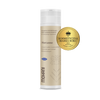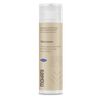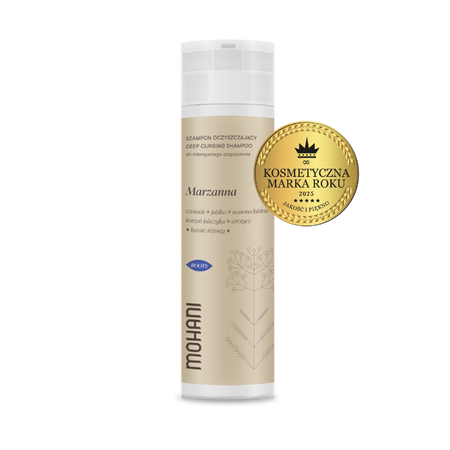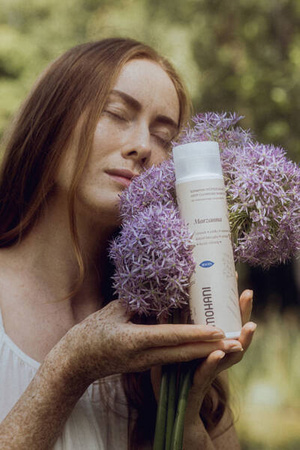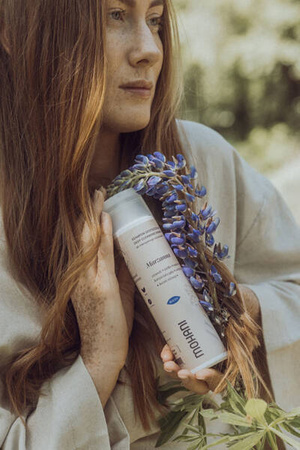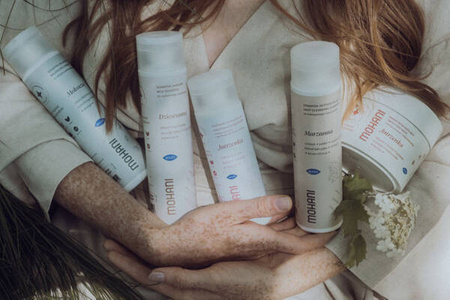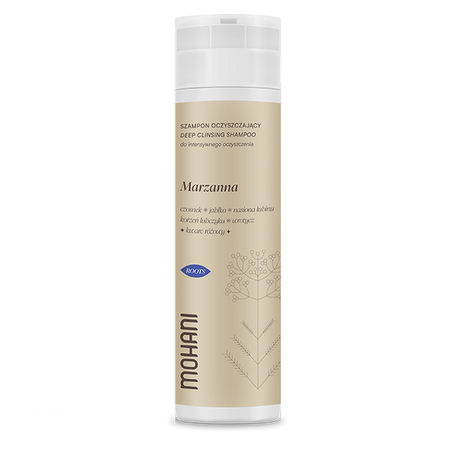Intensive cleansing shampoo Marzanna 250ml
- This shampoo is especially recommended for those who need a stronger cleansing of the hair and scalp from excess oil or styling products.
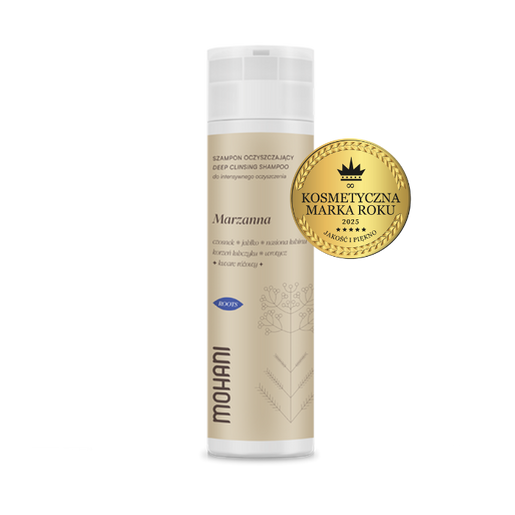
Cleansing shampoo is a key part of hair care, which is worth using regularly 1-2 times a week to keep your hair looking healthy and shiny. It removes not only daily impurities and excess oil, but also the residues of other cosmetics, such as conditioners and masks. As a result, hair becomes light, loose and bouncy at the roots. They become more susceptible to styling.
Marzanna shampoo is based on detergents of plant origin, whose washing power has been selected to effectively cleanse hair of excess sebum, impurities and styling agents.
This is the strongest shampoo in the entire Roots series, which was inspired by the tradition of herbalism and the rich history of Slavic roots. The shampoo's name derives from the Slavic goddess of winter, transformation and death. The goddess Marzanna (Queen of Snow) covers the earth with a white covering and causes the earth to fall into a winter slumber, only to be renewed with the arrival of spring.
In the formula of the shampoo, we used extracts from ancient Slavic herbs, flowers and fruits, such as vertica, garlic, lupine seeds, apple and lovage, which have soothing and moisturizing properties for the scalp. They have a cleansing, moisturizing and shining effect on the hair.
The formula is enriched with rose quartz extract, known as the “stone of love”.
It has special care properties, being rich in silicon. It keeps the scalp in proper condition and moisturizes the hair.
The ROOTS series is not only excellent hair care products. It's also an invitation to a magical world where every drop hides good energies, revitalizing the bond with nature and ancestral traditions.
Effectiveness confirmed by studies*:
- 100% of respondents rated the product:
- foams well
- the lather is creamy and rich
- easily rinses off
- it smells pleasant
- perfectly cleanses hair of excess oil, dirt and styling products
- hair feels fresh, light and loose after application
- bounces at the roots
- 76% rated that:
- hair is strengthened
- hair is shiny
- 72% rated the hair less frizzy
*Application studies conducted under the supervision of a dermatologist, in an independent research laboratory, on a group of 25 women.
[Plant drawings]
Care and magic properties of plants and stones:
Clove
Strengthens hair, stimulates blood circulation, which has a beneficial effect on the work of hair follicles.
In beliefs it was considered a protective plant against evil powers, warded off vampires and protected from witchcraft.
Common Starflower
Extract of the lovely yellow flowers has cleansing, nurturing properties, while also having an anti-seborrheic effect.
Protected against evil and lightning. It was used to get rid of love magic cast using lovage. It was necessary to take a bath just in the broom.
Lupine seed
Extract from the seeds of this flower has an excellent effect on hair. It smooths, strengthens and shines.
The sight of flowering lupine brings to our mind the summer aura of an idyllic meadow.
Apple
Apple extract rich in carbohydrates and AHA acids that moisturize hair.
The Slavs used apple in their love rituals. It was also believed that if a maiden passed by a bachelor eating the last bite of an apple she would soon become his wife.
Lupine
His extract soothes and calms the scalp. It conditions and moisturizes the hair.
In folk beliefs it awakens and ensures eternal love. Mothers used to bathe their daughters in lovage so that when they grew up they would please the boys.
Pink quartz
Pink quartz has special care properties. It is rich in silicon, which helps keep the scalp healthy and the hair moisturized.
Assists in the development of unconditional love. Moreover, the stone supports the development of feminine energy and has a positive effect on the heart chakra. It is said to promote forgiveness and general interpersonal relations.
For even better nurturing effects:
Inulin
A unique sugar polymer made from chicory root. Inulin smooths and leaves a pleasant film on the hair. In addition, it is a natural prebiotic and takes care of the scalp microbiome.
Wheat proteins
Strengthen and regenerate damaged hair strands that are subjected to frequent styling.
How to use:
Apply a small amount to wet hair. Massage until a generous lather forms, then rinse thoroughly. Use once a week, or when you find that your hair needs a stronger cleansing.
INCI:
Aqua, Sodium Coco- Sulfate, Coco-Glucoside, Cocoamidopropyl Betaine, Citric Acid, Potassium Abietoyl Hydrolyzed Soy Protein, Glycerin, Inulin, Hydrolised Wheat Protein, Allium Sativum Bulb Extract, Malus Domestica Fruit Extract, Lupinus Albus Seed Extract, Levisticum Officinale Roots Extract, Tanacetum Vulgare Extract, Quartz Powder, Tetrasodium Glutamate Diacetate, Xanthan Gum, Lactic Acid, Potassium Sorbate, Sodium Benzoate, Parfum.
- Capacity: 250 ml
- natural product
- vegan product
- product made in Poland
- 97.8% ingredients of natural origin
Story about the Slavic goddess:
One time Kupala decided that he would win the love of Marzanna. And it was still when she was a beautiful maiden. As he thought, so he began to do ...
At Marzanna's guard stood Nyja. She had the idea to kill Kupala and thus strengthen the victory of the Dark Gods in the world. Marzanna carried out this plan. She invited Kupala to the tin. When Kupala came to Marzanna's tyn and began to weave songs, and his mouth and his singing rose high.... Before he possessed her he fell asleep drunk with drink, and with the Silver Whip she cut off Kupala's head and in the Silver Lake....that it would remain her statue for ever...
The dead and motionless head of Kupala stood in her tyna for decoration. And the very carcass of Cupid-Wilderness, which is the god from which he took his name, and not from wild igres or strange beauty, she put on a black mount and let loose across the steppes. And Kupala ran through the day and night, and the mount never stopped, the sun greeted him and the moon said goodbye, rivers and forests greeted him, rocks and marshes greeted and bowed to him, but he unconscious saw nothing and rushed without stopping.
However, Czsnota, knowing that Kupala-Divine's intention was noble, did not intend to let this important Bright God remain so maimed and wander the world as the Headless Horseman. She visited Marzanna under the pretense that she was very pleased with her deed...she sneaked into the chamber where the statue made of Kupala's silver head stood, snatched the head and wrapped it quickly with burdock leaves, dug a hole in the ground at the Bright God Tree, littered it with mugwort and there buried the severed head of the god to come to herself.
When Marzanna woke up and perceived what had happened, she flew to Czsnota wanting to take back the statue, but the latter told her that she hadn't taken it at all and didn't have it. This was the only time Czsnota had ever lied in her life. Marzanna believed her, because Czsnota never lies. Czsnota quickly carried her head out from under the brightly-colored soil to the Earth, only changed her shovels for fresh ones and buried them under the willow at the foot of the high mountains. She searched for Marzanna's head, but did not find it, and she was in that place at the foot of the Tartar mountains, which they call Zakopane.
When Marzanna stopped thinking about Kupala's head and dealing with the matter, Rodzhana and Chsnota retrieved Kupala's silver head from the ground and, having captured the Headless Horseman, gave it back to him. Kupala thanked them very much and was so grateful that he promised to settle down once and for all. But, as is the case with Mr. Lust, he did not stay steady for long.
His head has not been quite as good as it used to be since then. As the year goes by, his head deteriorates more and more, so it's no wonder that someone who succumbs to lust like Kupala is said to have lost his head. It is also said that when lust rages then reason sleeps, and that when the head turns gray (that is, “turns silver”) then the appendage goes mad, which is the opposite of the head.
Czeslaw Bialczynski, Slavic Mythology, The Book of Ruth
